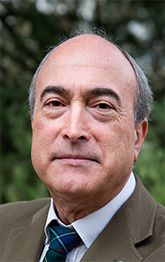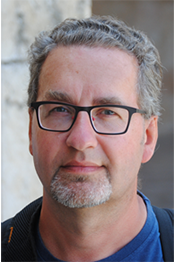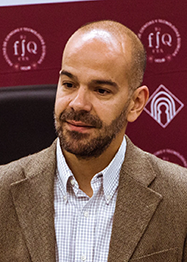
2nd Seminar «Frontiers in Nanoscience: Nanochemistry on surfaces»
Prof. De Feyter is world leading scientist in nanochemistry and supramolecular chemistry on surfaces. His research central theme is self-assembly on surfaces, with a focus on the relation between structure and function. Recent research activities carried out by his group cover a broad range of topics such as two-dimensional crystal engineering (e.g. formation of nanoporous surfaces, chirality at interfaces), templating, dynamics and reactivity. These studies aim at bringing insight in the fundamental aspects of molecule-substrate interactions and controlled surface functionalization, topics that are certainly at the frontier of nanoscience.
Speakers

Prof. Nazario Martín
Presentation
Full professor of Organic Chemistry at the University Complutense of Madrid and Deputy Director of IMDEA Nanociencia. Ex-President of the Confederation of Scientific Societies of Spain (COSCE) and Fellow of The Royal Society of Chemistry and Ex-President of the Spanish Royal Society of Chemistry. He has been the recipient of the Dupont Prize of Science and of the Gold Medal and Research Award” and National Science Award in 2020, Premio REy Jaime I de Investigación Científica among others.


Steven de Feyter
Guest Speaker
Full Professor at KU Leuven in the ‘Division of Molecular Imaging and Photonics’. He has received many awards including Laureate of The Royal Flemish Academy of Belgium for Science and the Arts: Natural Sciences, European Research Council (ERC) Advanced Grant (NANOGRAPH@LSI), Elected member of the Royal Flemish Academy of Belgium for Science and the Arts: Natural Sciences, 26th IOCF Yoshida Lectureship, Elected member of the “European Academy of Sciences”.


Emilio Pérez
Q&A Moderator
Senior Research Professor and Executive Director for Scientific Outreach at IMDEA Nanociencia. His group’s research interests are focused in three areas: development of new methods for chemical modification of carbon nanotubes; covalentand noncovalent chemistry of 2D materials; and fundamental aspects of supramolecular chemistry. He has received several distinctions, including ERC Starting (2012) and Proof-of-Concept (2018) grants and the 2013 Miguel Catalán Award for Scientists <40 years old.

